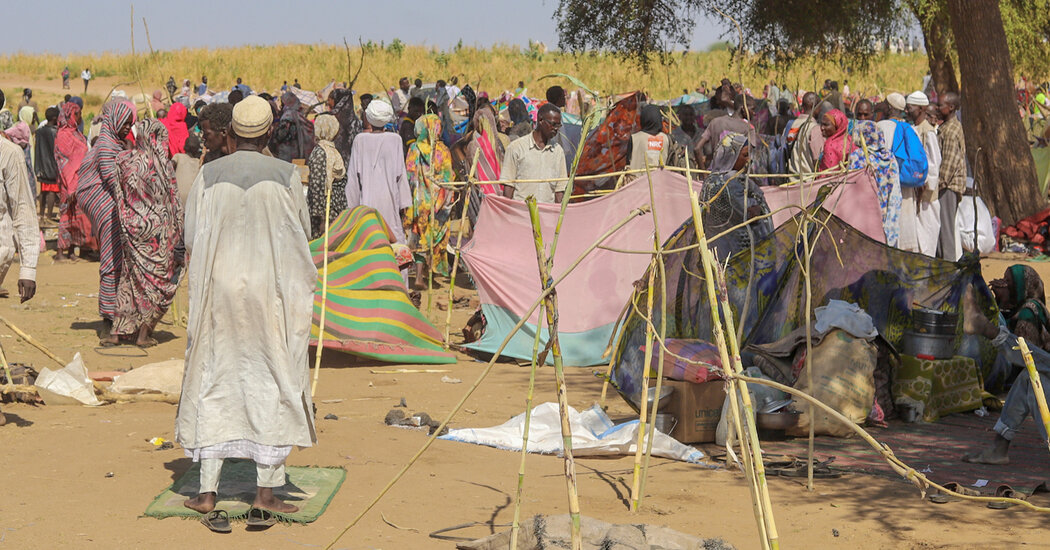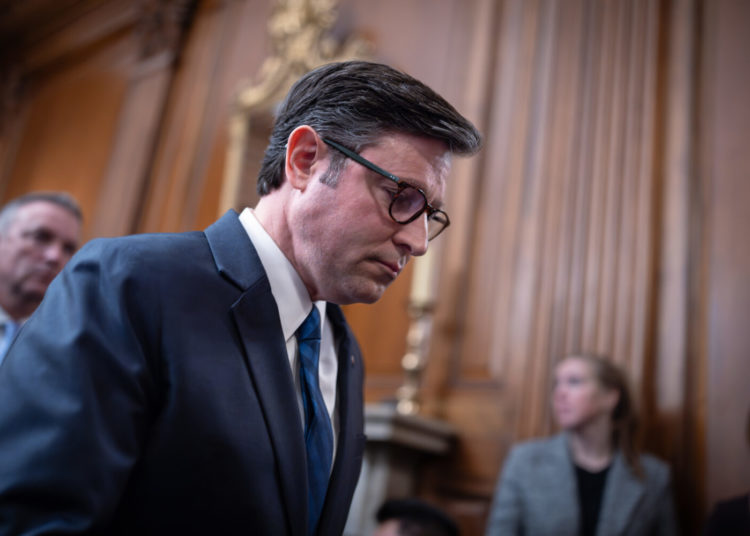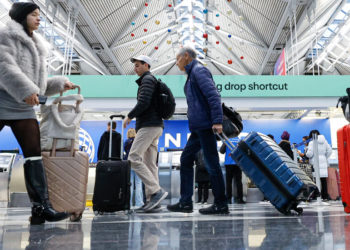Accounts are emerging of mass atrocities being committed in a major city in the Darfur region of Sudan. But in contrast with the global outrage two decades ago about genocide in Darfur, there is far less attention on the region today.
Tedros Adhanom Ghebreyesus, the director general of the World Health Organization, reported on Wednesday that “more than 460 patients and companions at Saudi Maternity Hospital” had been killed in the city of El Fasher. Video clips of executions and other abuses are also circulating online, and while it is not always possible to verify them, the BBC has geolocated at least one to the city. The Yale Humanitarian Research Lab has also reported “evidence of mass killings” based on satellite photos that appear to show bodies and the city’s sand stained with blood.
The massacres followed the seizure of El Fasher after a long siege by the Rapid Support Forces, a militia that is battling the Sudanese Armed Forces in a civil war that has claimed as many as 400,000 lives, many of them women and children. While both sides have been accused of war crimes, the United States has described the actions of the Rapid Support Forces as genocide.
We Americans may dismiss this as a distant tragedy that has nothing to do with us; alternatively, we may believe that the choice is to invade or to do nothing. But I believe that some of these atrocities were in fact preventable. The Rapid Support Forces have been armed by the United Arab Emirates (despite denials from the Emirates), and the United States has consistently refused to speak up forcefully and publicly to demand that the Emirates stop supporting the militia.
If either President Trump or Joe Biden had been willing to name and shame the Emirates, I suspect it would have backed off — or at least required the Rapid Support Forces to stop slaughtering and raping civilians. The Emirates pulled out of a brutal war in Yemen in 2019 largely after being embarrassed by bad publicity, and pressure probably would have worked in this case as well — but it was never applied adequately.
It is particularly shameful that both the Biden and Trump administrations have described the killings in Sudan as a genocide, yet neither tried forcefully to stop it in public. Diplomacy with the Emirates was a higher priority than preventing what the administrations said was genocide.
After the seizure of El Fasher, “a calculated and long-planned campaign of destruction is taking place” in Darfur, warned Jan Egeland of the Norwegian Refugee Council. “Vulnerable civilians tell us about house-to-house raids and of people hiding in holes buried underground to survive, as entire families are being killed.”
It is difficult to know the scale of the killing, partly because the Rapid Support Forces detained Muammar Ibrahim, a Sudanese journalist reporting from inside El Fasher. But last year I spoke to survivors of similar rampages by the Rapid Support Forces, who are typically lighter-complexioned Arabs targeting Black African tribes. One woman, Maryam Suleiman, told me that the militia members lined up all the men and boys in her village and shot them dead. “We don’t want to see any Black people,” she recounted a militia leader saying.
The militia systematically executed all boys over the age of 10, she said, along with some who were much younger: She described a day-old infant boy who was thrown to the ground and killed. Then the troops rounded up the women and girls to rape. “You’re slaves,” she recalled the militia leader telling them.
For many months, human rights groups have warned that if the Rapid Support Forces broke the siege in El Fasher, similar atrocities would unfold there. Yet the world largely shrugged.
That is what happens when there is impunity. For warlords, atrocities are convenient: Massacres are effective at ethnic cleansing an unwanted group. The way to end such crimes against humanity is not to send U.S. troops to invade, but to establish accountability — through the International Criminal Court, and also by cutting off weapons to the armed factions and their backers.
While the White House has utterly failed to do that, some members of Congress have stepped up and backed efforts to limit arms sales to the Emirates as long as it enables atrocities in Sudan. Bravo to those like Senators Chris Murphy and Chris Van Hollen, Democrats of Connecticut and Maryland, and representatives like Sara Jacobs and Gregory Meeks, Democrats of California and New York, for trying to establish accountability and demonstrating that mass slaughter in Darfur matters as much in 2025 as it did in 2005.
The Times is committed to publishing a diversity of letters to the editor. We’d like to hear what you think about this or any of our articles. Here are some tips. And here’s our email: [email protected].
Follow the New York Times Opinion section on Facebook, Instagram, TikTok, Bluesky, WhatsApp and Threads.
Nicholas Kristof became a columnist for The Times Opinion desk in 2001 and has won two Pulitzer Prizes. His new memoir is “Chasing Hope: A Reporter’s Life.” @NickKristof
The post The World Has Again Failed to Prevent Atrocities in Darfur appeared first on New York Times.




